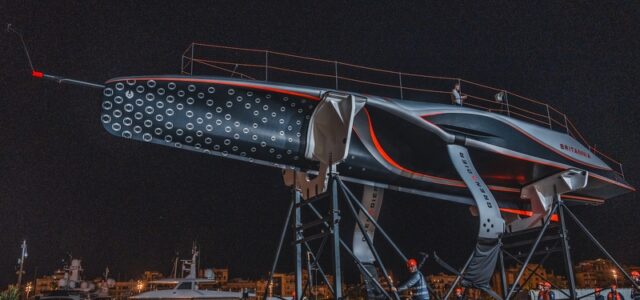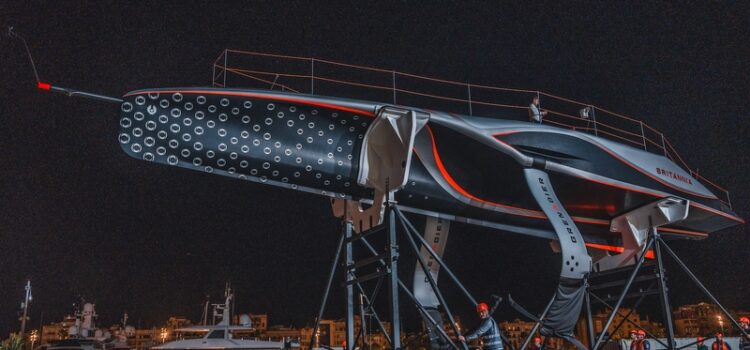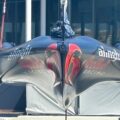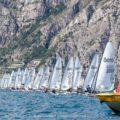

America’s Cup, INEOS Britannia reveal RB3 before dawn
America's CupBreaking newsEnglishIn evidenzaVela 22 Aprile 2024 Zerogradinord 0

Barcelona – The shutters opened at the INEOS Britannia base just after 5am on Saturday, and out into the moonlight under floodlight came the boat that all British fans hope will have the best chance of winning the Louis Vuitton 37th America’s Cup in 173 years.
Codenamed RB3 for the past two-and-a-half years, the latest AC75 to be revealed is outlandishly stunning with an all-business paint job that accentuates the curvature of the hull form and tricks the eye. Detailing aplenty, it’s a subtly different approach from what we’ve seen so far and represents the very best of design and build.
The most obvious talking point is the hull form. What the British have gone for is a step-on from their prototype boat ‘T6’ with a voluminous, integrated bustle in the bow with a small chine leading back along the keel-line to a razor-sharp edged lower bustle that stops a few feet from the stern.
The flaring at the bow is somewhere mid-way between the Kiwis and Italians. Ending the bustle before the transom leaves presumably the majority of the rudder mechanics above deck on the gantry so there’s an aero trade-off with a considerable, but beautifully sculpted, stern gantry that screams Formula 1 design. The almost dead flat stern run off is an area unlikely to be touching water in flight – that’s the thinking at least – and is similar to what we have seen elsewhere.
The area of much interest in this Cup cycle is the aero moulding of the deck and here INEOS Britannia looked to have aced it. Similar in form to both Emirates Team New Zealand and Luna Rossa Prada Pirelli but with perhaps slightly more ‘tunnel’, the deck run off aft is highly aero optimised. The cyclor pods end with a gradual pinch that flows all the way to the transom and the four pods either side look to again be a big nod to aero – we will see more when RB3 is launched. Up on the bow there is considerable moulding that appears drop-nosed in form, undoubtedly the result of endless hours in the simulations to create the perfect flow into the jibs.




No comments so far.
Be first to leave comment below.